

Last updated on

Sometimes, multiple keywords or search themes in your account may be eligible to match a search term, but only one will be selected to participate in the auction.
So, how does Google decide which keyword to promote?
Google uses a prioritization framework for this purpose!
We’ve also recently introduced updates to query matching controls, including new brand inclusions and exclusions, to help direct traffic more effectively.
While the framework for keyword and search theme prioritization isn’t brand new, recent advancements in AI have brought significant improvements.
Now is a great time to explore the details of keyword prioritization and query matching controls. Understanding these aspects will help you better organize your campaigns and ad groups, create effective keyword lists (both positive and negative), select the right keyword match types, and leverage search themes to enhance performance.
We’ll discuss various scenarios and key considerations for each prioritization rule, as well as the latest developments in query matching controls.
Keyword prioritization rules are designed to enhance the relevance of keywords to queries, resulting in improved user experiences and better outcomes for advertisers.
Additionally, these rules provide a significant advantage by addressing the issues that led advertisers to use complex “keyword sculpting” techniques. Previously, advertisers had to create intricate account and bid structures to direct traffic effectively.
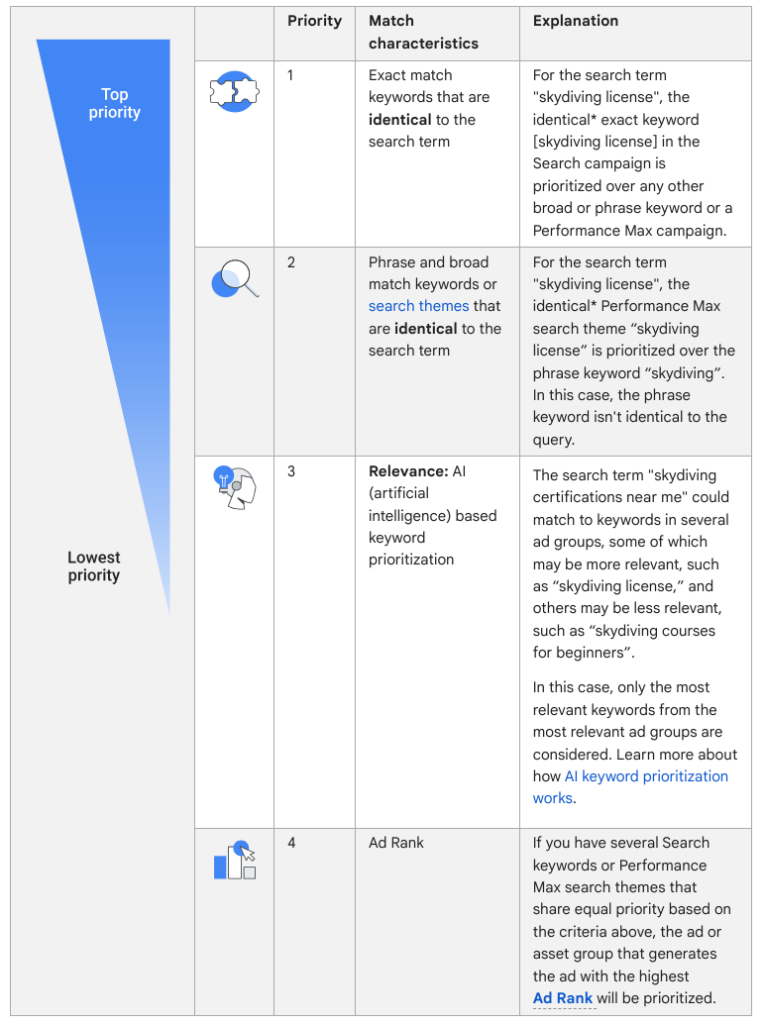
I categorize the four priority levels or rules into two groups:
When you have an exact match keyword that exactly matches the search term or its spell-corrected variant, this keyword will be given priority in the auction over all other keywords in your account.
This prioritization rule means:
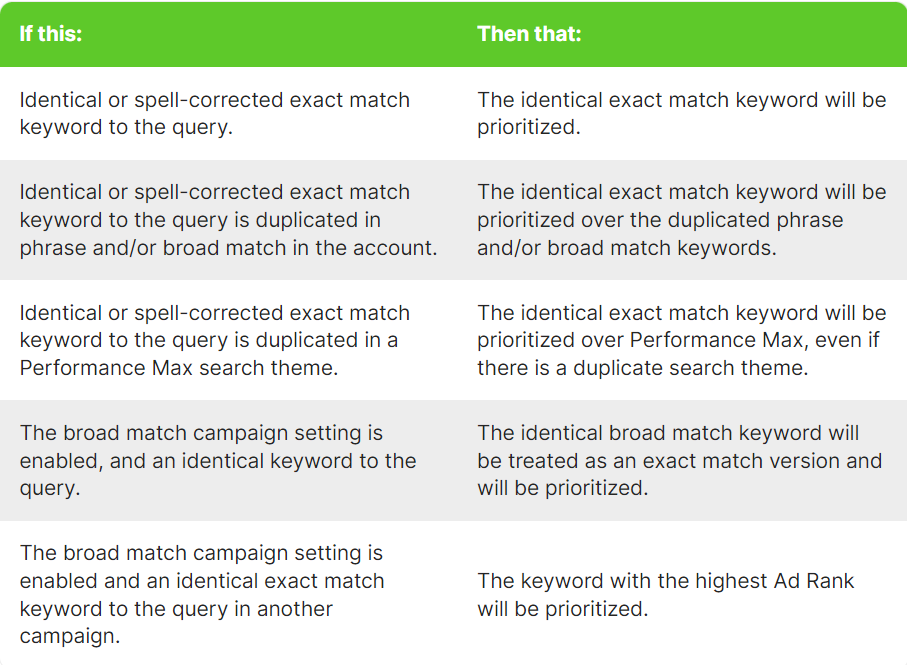
Keep in mind:
Next, if there isn’t an identical exact match keyword, the system will check for a phrase or broad match keyword, or Performance Max search theme that matches the query or its spell-corrected variant.
This prioritization rule means:
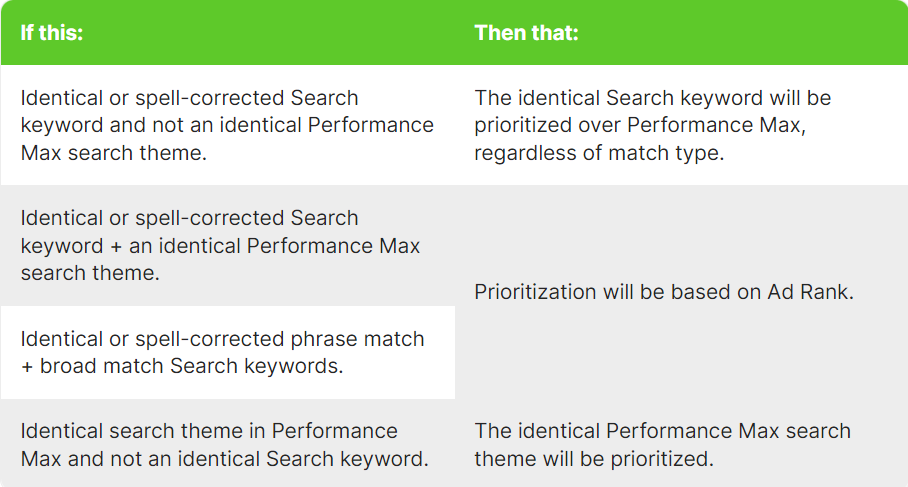
Keep in mind:
Now, let’s move on to the next two rules of prioritization for scenarios where you don’t have an identical match for the query in your account.
This is the latest development in keyword prioritization and represents a major advancement in Search campaign keyword selection.
AI-based keyword prioritization uses relevance signals to determine the best keywords from the most relevant ad groups when multiple ad groups could potentially match a query.
This prioritization rule means:
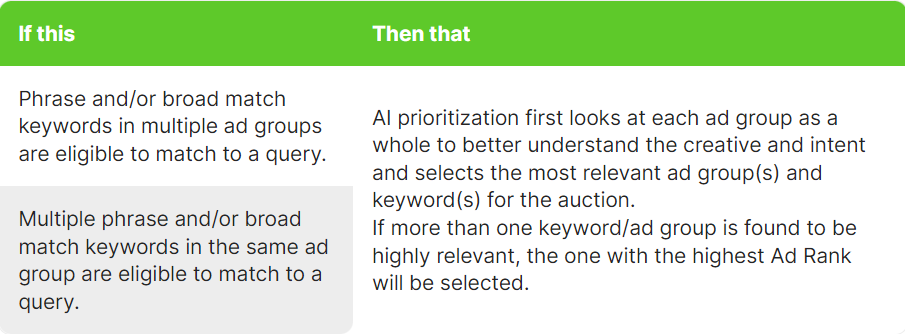
Keep in mind:
For example, consider a search for “skydiving certifications near me.” This could potentially match the ad groups “Skydiving License” and “Advanced Skydiving Courses.”
Both ad groups are relevant to the query, but the “Skydiving License” ad group has keywords and a landing page specifically focused on licensing, while the “Advanced Skydiving Courses” ad group centers on advanced courses.
Since ‘license’ (present in both the keywords and landing page) and ‘certifications’ (in the search term) are more closely related than ‘courses’ and ‘certifications,’ the “Skydiving License” ad group is chosen for the query.
(As someone who has worked extensively on education and certification campaigns, I find this example particularly insightful!)
Ad Rank is the ultimate rule for deciding which keyword or search theme in your account gets chosen for the auction. We’ve discussed some scenarios where Ad Rank comes into play when other criteria aren’t met.
Ad Rank evaluates several factors, including ad quality components, in real-time during each auction to determine where and if your ads are shown compared to other advertisers. You can learn more about Ad Rank here.
Here’s what this prioritization rule means:
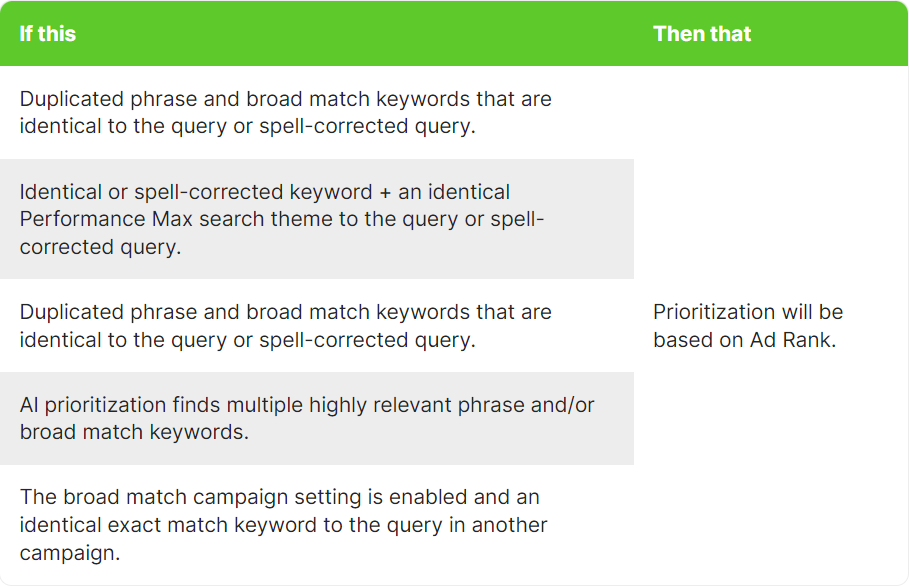
Keep in mind:
In June, we introduced several updates related to query matching and brand controls. I’ll provide more details on each update and address some of the questions I’ve received about them.
This feature, formerly known as brand restrictions, ensures that your ads only appear for queries related to your brand name in broad match campaigns.
To enable brand inclusions, activate the broad match keyword setting in your campaign. This will automatically adjust your keywords to broad match.
Once you create a brand list at the account level, you can apply it to your campaign.
It’s important to note that broad match is continually improving, with AI advancements driving these enhancements. For instance, in the past six months, broad match performance improved by 10% for advertisers using Smart Bidding, thanks to AI-driven advancements in quality, relevance, and language understanding.
Alongside Smart Bidding, there are several key controls for managing broad match. We’ve already discussed the significance of ad group theming.
Brand inclusions are a new control designed to help advertisers use broad match more effectively in their branded campaigns. This means:
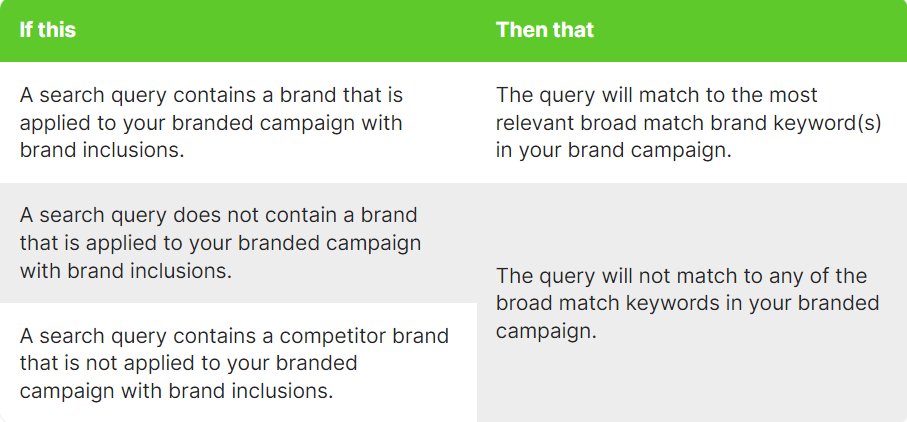
Keep in mind:
Currently available for Performance Max, brand exclusions will soon be introduced for Search as well.
Brand exclusions provide a simple way to block traffic from queries related to specific brand names and their misspellings.
Similar to brand inclusions, you create brand lists at the account level and apply them to exclude certain brands from your Search and/or Performance Max campaigns.
Here’s what you can do with brand exclusions:
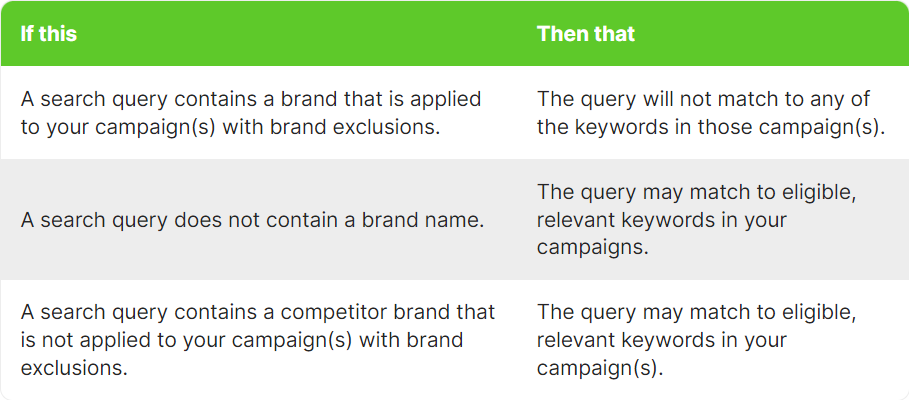
Keep in mind:
Negative keywords are a powerful tool for blocking traffic from unwanted search terms, and this recent update makes them even more effective. Negative keywords now also prevent matches with misspelled queries. Here’s how this update impacts your strategy:
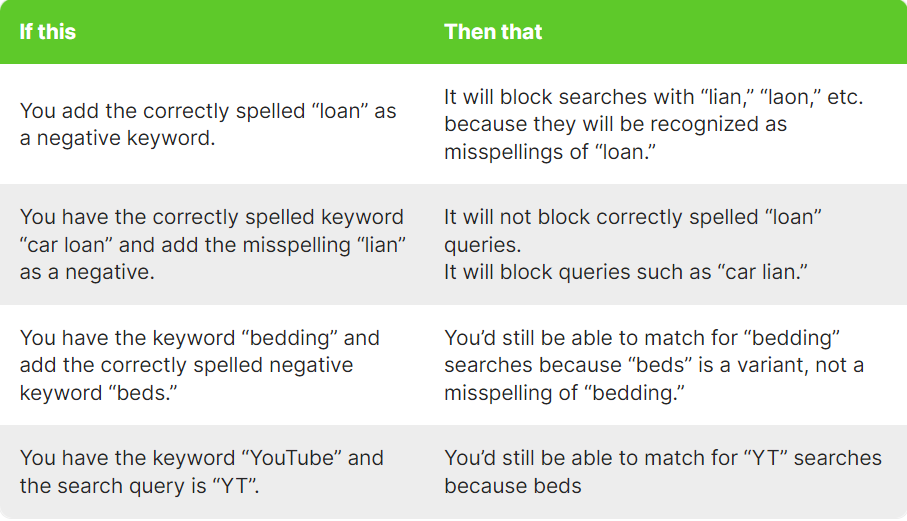
Keep in mind:
Finally, I want to address a recent change that has raised some questions.
Earlier this year, we announced that we would automatically pause Search ad groups and keywords that haven’t received any impressions in the past 13 months. Idle ad groups and keywords can accumulate over time, contributing to clutter without improving performance.
We do not anticipate that pausing ad groups or keywords with no impressions for over a year will significantly impact your Search campaign traffic or alter the traffic distribution between your Search and Performance Max campaigns.
You can still review and unpause any keywords or ad groups you believe are necessary. However, this brings us back to the importance of account structure and ad group theming for relevance.
Before re-enabling paused ad groups or keywords, consider the following:
With a better grasp of how keyword prioritization rules and query matching controls operate, it’s a good time to reassess your account.
Look for opportunities to reorganize and consolidate your campaigns, and focus on refining the themes of your ad groups.
These changes will help streamline your account, making management simpler, and ensure that your ads are effectively matched to relevant queries, ultimately driving better results.
Original news from SearchEngineJournal